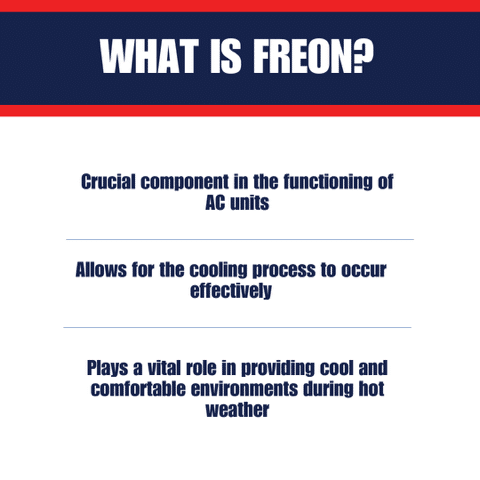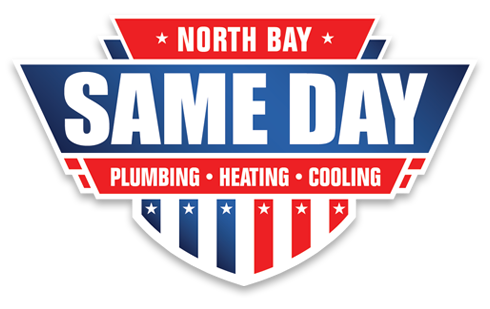California Homeowners: Can You Fix A Freon Leak?
Finding and fixing AC freon leaks can be a difficult task for the average California homeowner, and it typically requires an intermediate level of AC knowledge and skill. The process can take anywhere from 2 to 4 hours, depending on the extent of the leak and the complexity of the system.
The issue is the importance of having some understanding of how air conditioning systems work, as well as knowing potential risks associated with handling refrigerants.
It’s our recommendation that if you believe you have a freon leak, you call a professional such as Same Day.
Signs That You Have A Freon Leak In Your California Home
These indicators may suggest that your AC unit has a leak:
1. Liquid/Moisture: Have you noticed any liquid or moisture near your indoor AC unit? It could be a sign of a potential freon leak.
2. Overflowing Drain Pan: If your drain pan is overflowing, it might suggest that there is a freon leak in your air conditioner.
3. Ice Buildup: Are you experiencing ice formation on the evaporator coils of your AC unit? This is a common indication of a freon leak.
4. Increased Humidity: Have you noticed an increase in indoor humidity levels? It could be a result of a freon leak in your air conditioner.
5. Slower Cooling: Is your AC unit taking longer to cool down your space? This may be a sign of a freon leak that needs to be addressed.
6. High Energy Bills: Have you noticed a significant increase in your energy bills? Freon leaks can cause your air conditioner to work harder, resulting in higher energy consumption.
7. Bubbling Sounds: Have you heard any unusual bubbling sounds coming from your AC unit? This could be an indication of a freon leak that requires attention.
8. Visible Damage: Take a close look at the outdoor condenser and the connected lines. Are there any signs of visible damage? This could be a clue that there is a freon leak in your air conditioner system.
9. Mold Growth: Have you noticed any mold growth around your indoor air handler? This could be a possible consequence of a freon leak.
10. Water Leaking: Is water leaking from your vents or air returns? This may be a sign of a freon leak that needs to be fixed promptly to ensure proper operation of your air conditioner.

Is Freon Legal In California?
Unfortunately, using old Freon, also known as R-22, is no longer legal in California since January 1, 2020. The Environmental Protection Agency (EPA) took this step to protect our environment and the ozone layer from the harmful effects of Freon.
If you have an older air conditioner that uses Freon and was manufactured before 2010, you might be wondering if you can still recharge it. While technically it is still possible to recharge these units, finding reclaimed Freon can be quite a challenge. Replacing the unit may, in some instances, be a viable option.
While R-410a refrigerant is generally considered better than R-22, California is also the first state in the U.S. planning to ban R-410a and other hydrofluorocarbon refrigerants. Passed in March 2022, SB-1206 by California’s State Senate will prohibit the sale of certain refrigerants in the future.
It should be noted that you cannot simply switch refrigerants as they have different chemical compositions.
New Refrigerants Such As R32 vs. R-410a
R-32 is a more sustainable alternative to older refrigerants like R-22 and R-410a, and boasts a lower global warming potential at a better cost and more efficiency for functions such as home cooling.
As of March 2024, it is legal to use R-32 refrigerant in California. The reason behind this is that R-32 has a GWP (Global Warming Potential) of 675, which falls below the current limit of 750.
However, it’s important to note that the California Commission is currently discussing updated standards, which could potentially restrict the installation of R-32 split air conditioners in multi and single heat pump units.
Can You Purchase R-32 Refrigerant?
While you can purchase R-32 refrigerant from wholesalers, it is not recommended that a homeowner try to DIY fix their air conditioner that is leaking freon.
How to Find & Fix AC Freon Leaks
To find and fix freon leaks, it is essential to first identify the source of the leak using specialized tools such as a refrigerant leak detector or UV dye. This is why we stress calling a professional.
Once the leak has been pinpointed, repairs can be made by either sealing the leak with epoxy or replacing damaged components such as coils or fittings. Properly allowing a professional to seal freon leaks will not only improve the performance of your air conditioner but also help extend its lifespan and save you money on repairs in the long run.
Should You Repair or Replace an AC Leaking Refrigerant?
When it comes to dealing with an AC leaking refrigerant, the decision to repair or replace the system ultimately depends on the extent of the damage and the age of the unit. If the leak is small and can be easily repaired, then opting for a repair may be a cost-effective solution. However, if the leak is extensive or if the air conditioner is older and nearing the end of its lifespan, then it may be more prudent to replace the system altogether.
Ultimately, consulting with HVAC professionals like Same Day Plumbing, Heating, Cooling can help you determine whether repairing or replacing your AC unit is the best course of action for your specific situation.
